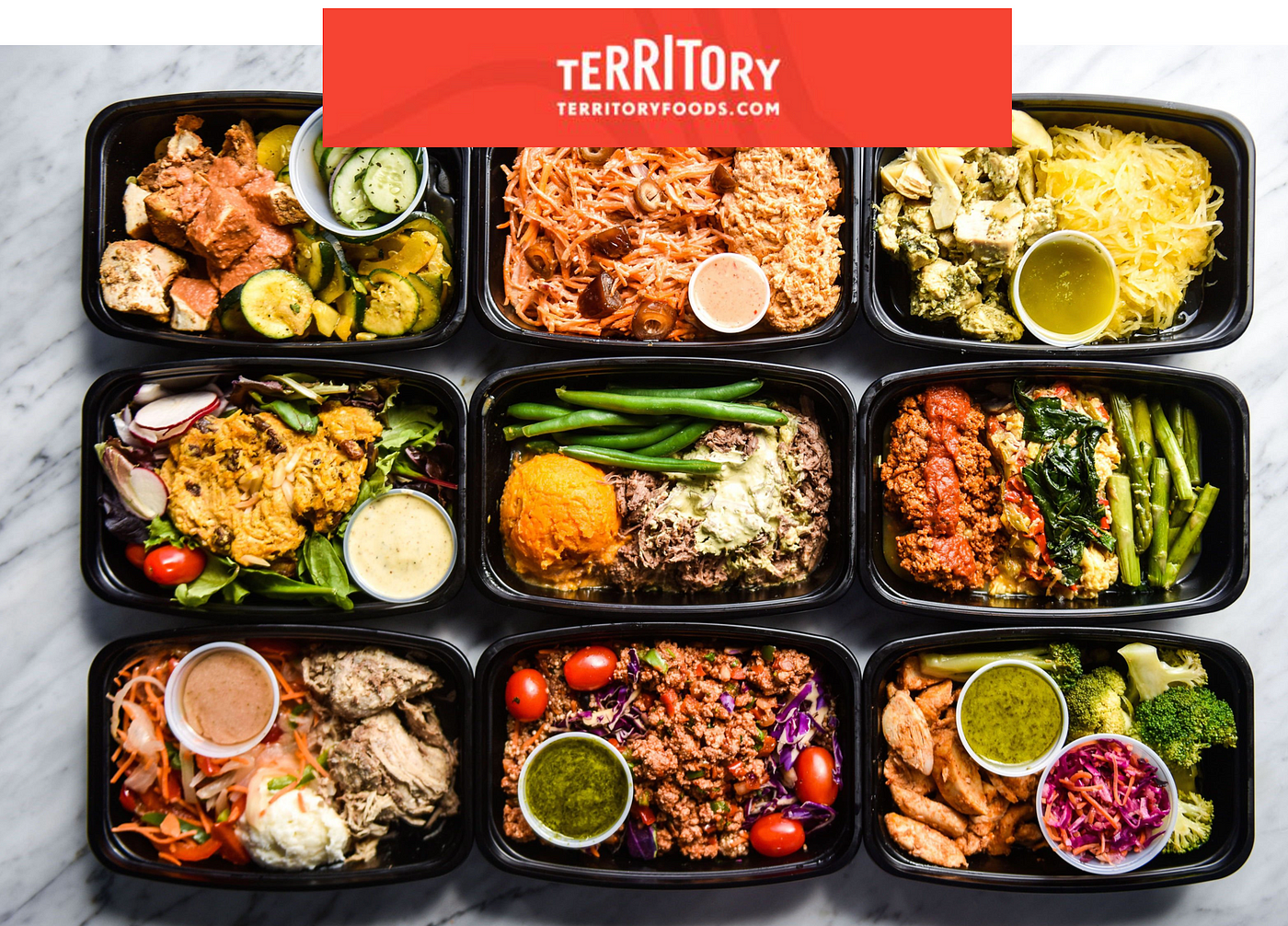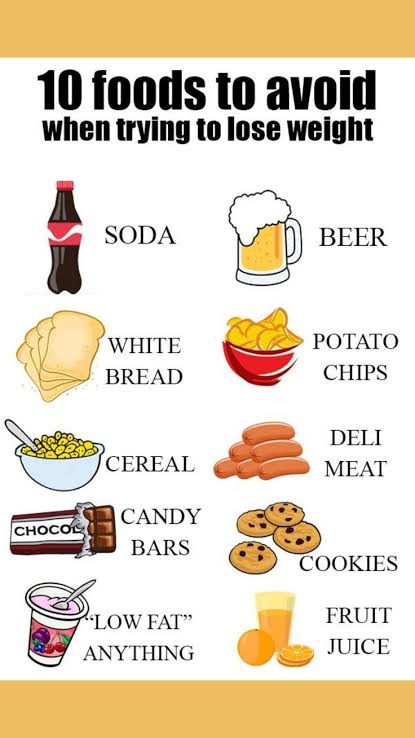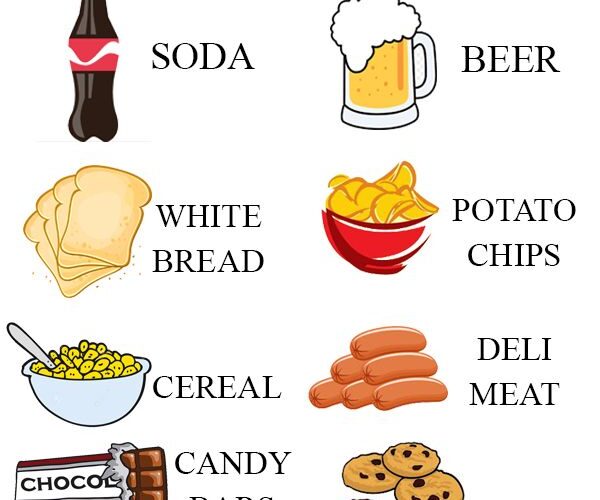Avoid fad diets and excessive calorie restriction during your weight loss journey. These can harm your metabolism and overall health.
Embarking on a weight loss journey requires careful planning and awareness. Many people fall into the trap of quick-fix solutions, which often lead to disappointment and health issues. Sustainable weight loss focuses on balanced nutrition, regular physical activity, and healthy lifestyle changes.
It’s crucial to avoid shortcuts like fad diets and extreme calorie cuts, as these can damage your metabolism and lead to nutrient deficiencies. Instead, aim for gradual progress by setting realistic goals and staying consistent. Monitoring your eating habits and incorporating a variety of foods can help you achieve long-term success. Remember, the key to effective weight loss lies in adopting a balanced, healthy approach.

Credit: bothsidesofthetable.com
Common Weight Loss Myths
Embarking on a weight loss journey can be confusing. Many people fall for common myths that can derail their progress. It’s essential to separate fact from fiction to achieve your goals effectively. Let’s debunk some of these myths.
Skipping Meals
Many believe skipping meals helps with weight loss. This is a myth. Skipping meals can slow down your metabolism. When your metabolism slows, your body burns fewer calories. This can lead to weight gain instead of loss.
Here are some reasons why skipping meals is not effective:
- Leads to overeating later
- Causes low energy levels
- Triggers unhealthy cravings
Instead, aim for balanced, nutrient-rich meals throughout the day. This keeps your energy levels steady and helps you avoid cravings.
Extreme Caloric Deficit
Some think eating very few calories is the key to losing weight. This is another common myth. An extreme caloric deficit can harm your body. It can lead to muscle loss, nutrient deficiencies, and a weakened immune system.
Consider these negative effects of extreme caloric deficits:
| Effect | Description |
|---|---|
| Muscle Loss | Your body may start breaking down muscle for energy. |
| Nutrient Deficiencies | Not eating enough can lead to lack of essential nutrients. |
| Weakened Immune System | Your body can’t fight off illnesses effectively. |
Focus on a balanced diet with a moderate caloric deficit. This ensures you lose weight healthily and sustainably.

Credit: www.pinterest.com
Harmful Dieting Practices
Embarking on a weight loss journey can be challenging. Many people fall into harmful dieting practices that can cause more harm than good. It’s vital to understand and avoid these practices for a healthy and sustainable weight loss experience.
Fad Diets
Fad diets promise quick results but are often unhealthy. These diets usually restrict essential nutrients and can lead to nutritional deficiencies.
- Keto Diet: Limits carbohydrates severely, affecting energy levels.
- Juice Cleanses: Lack protein and fats, causing muscle loss.
- Paleo Diet: Excludes whole food groups, leading to imbalanced nutrition.
Following fad diets can result in rapid weight loss, but the results are often short-lived. Once normal eating resumes, the weight tends to come back.
Misuse Of Supplements
Many turn to supplements to speed up weight loss. This practice can be dangerous.
- Fat Burners: Often contain stimulants that can cause heart issues.
- Appetite Suppressants: Can lead to malnutrition and eating disorders.
- Detox Pills: May cause dehydration and electrolyte imbalances.
Supplements should be used with caution and under medical supervision. Relying on them can lead to serious health problems.
Severe Food Restrictions
Some people cut out entire food groups to lose weight quickly. This method is harmful and unsustainable.
| Food Group | Potential Issues |
|---|---|
| Carbohydrates | Low energy, mood swings, digestive issues |
| Fats | Hormonal imbalances, poor skin health |
| Proteins | Muscle loss, weakened immune system |
Balanced nutrition is key to healthy weight loss. Severe food restrictions can lead to long-term health problems.
Psychological Pitfalls
Your weight loss journey isn’t just about physical changes. The mind plays a huge role too. Avoiding psychological pitfalls can be the key to your success. Let’s explore the common traps and how to steer clear of them.
Setting Unrealistic Goals
Setting goals is important. But aiming too high can be harmful. Unrealistic goals can lead to frustration. When you don’t meet these goals, you might feel like giving up.
- Instead, set small, achievable goals.
- Celebrate each milestone you reach.
- Adjust your goals as needed.
Negative Self-talk
Negative self-talk can sabotage your efforts. Telling yourself you’re not good enough can harm your self-esteem. This can make it harder to stay motivated.
Replace negative thoughts with positive affirmations. Say things like, “I am strong” or “I am capable”. Surround yourself with supportive people.
Ignoring Mental Health
Weight loss isn’t just about diet and exercise. Ignoring mental health can slow your progress. Stress, anxiety, and depression can affect your weight loss journey.
| Mental Health Tip | Benefit |
|---|---|
| Practice mindfulness | Reduces stress |
| Get enough sleep | Improves mood |
| Talk to a therapist | Offers support |
Remember, a healthy mind leads to a healthy body. Keep your mental health in check to achieve your weight loss goals.
Ignoring Nutritional Balance
Maintaining a nutritional balance is crucial in any weight loss journey. Ignoring this can lead to various health issues. Understanding what to avoid helps in keeping your diet balanced and effective.
Cutting Out Entire Food Groups
Eliminating whole food groups can be harmful. Each food group provides unique nutrients. For instance, cutting out carbs can lead to energy deficiency. Similarly, avoiding fats can affect hormone balance.
- Carbs provide energy.
- Fats support hormone production.
- Proteins help in muscle repair.
A balanced diet includes all food groups in proper proportions.
Overemphasis On Protein
Focusing too much on protein can lead to an imbalance. While protein is essential, too much can strain the kidneys. It can also lead to nutrient deficiencies.
| Nutrient | Function |
|---|---|
| Protein | Muscle repair |
| Carbohydrates | Energy |
| Fats | Hormone support |
Ensure a balanced intake of all macronutrients.
Neglecting Micronutrients
Micronutrients are vital for overall health. Ignoring them can lead to deficiencies. Vitamins and minerals support various body functions. For example, Vitamin D supports bone health, while Iron is crucial for blood health.
- Include a variety of fruits and vegetables.
- Consider a multivitamin if needed.
- Monitor your micronutrient intake regularly.
A well-rounded diet ensures you get all necessary vitamins and minerals.
Overlooking Physical Activity
Physical activity is crucial for weight loss. Many people overlook it. Ignoring exercise can hinder your progress. It’s essential to understand the types of exercises to avoid common mistakes.
Focusing Solely On Cardio
Cardio exercises like running and cycling are great. They help burn calories quickly. But focusing only on cardio can be a mistake. Your body needs a mix of activities. This ensures balanced health and effective weight loss.
| Cardio | Strength Training |
|---|---|
| Burns calories quickly | Builds muscle mass |
| Improves heart health | Increases metabolism |
Avoiding Strength Training
Many avoid strength training. They fear becoming bulky. This is a myth. Strength training helps build lean muscles. Lean muscles burn more calories at rest. It also tones your body, giving you a fit appearance.
- Increases muscle mass
- Boosts metabolism
- Improves bone density
Inconsistent Exercise Routine
Consistency is key in any weight loss journey. Skipping workouts can slow progress. An inconsistent routine makes it harder to achieve goals. Create a schedule and stick to it. Consistency helps build a habit and ensures steady progress.
- Plan your workouts
- Set realistic goals
- Track your progress

Credit: twitter.com
Dehydration Dangers
Staying hydrated is essential during your weight loss journey. Dehydration can slow down your progress and affect your health. Let’s explore what you need to avoid to stay properly hydrated.
Underestimating Water Intake
Many people underestimate how much water they need daily. It is vital to drink enough water to support your body’s functions. Aim for at least eight glasses of water each day. This helps keep your metabolism active and supports fat burning. Also, drinking water before meals can help you feel fuller and reduce overeating.
Substituting With Sugary Drinks
Some people replace water with sugary drinks. These drinks are high in calories and can hinder your weight loss. Instead, choose water, herbal teas, or low-calorie drinks. Avoid soda, fruit juices, and energy drinks. These beverages can cause weight gain and increase your risk of dehydration. They often contain caffeine, which is a diuretic and can make you lose more water.
| Beverage | Calories per Serving | Hydration Level |
|---|---|---|
| Water | 0 | High |
| Herbal Tea | 0-5 | High |
| Soda | 150-200 | Low |
| Fruit Juice | 120-150 | Medium |
| Energy Drinks | 100-200 | Low |
The Perils Of Quick Fixes
Many people seek quick fixes for weight loss. They promise fast results. These methods often lead to disappointment and health risks. Understand the dangers to make informed choices.
Relying On Weight Loss Pills
Weight loss pills can be tempting. They promise rapid results with little effort. But these pills often contain harmful ingredients. Some can cause severe side effects like heart problems and anxiety.
Most weight loss pills lack scientific backing. They often fail to deliver lasting results. Instead, focus on natural and safe methods.
| Risks of Weight Loss Pills |
|---|
| Heart issues |
| Anxiety and mood swings |
| Digestive problems |
Trusting Detox Teas
Detox teas are marketed as miracle solutions. They claim to cleanse your body and help shed pounds. But detox teas often contain laxatives. This can lead to dehydration and nutrient loss.
Detox teas do not provide sustainable weight loss. They offer short-term water loss. Always prioritize long-term habits over quick fixes.
- Dehydration
- Loss of essential nutrients
- Temporary results
Neglecting Sleep And Recovery
Many people focus solely on diet and exercise during weight loss. Neglecting sleep and recovery can hinder your progress. Quality sleep and proper rest are crucial for effective weight loss. Here’s why you should avoid compromising on these aspects.
Compromising Sleep Quality
Sleep quality affects your body’s ability to lose weight. Poor sleep can increase hunger hormones. This leads to overeating and weight gain. Aim for 7-9 hours of sleep each night.
Here are some tips for better sleep:
- Maintain a consistent sleep schedule.
- Avoid caffeine and heavy meals before bed.
- Keep your bedroom cool and dark.
Quality sleep aids in muscle recovery and fat loss. Don’t underestimate its importance.
Ignoring Rest Days
Ignoring rest days can lead to burnout and injuries. Your muscles need time to repair. Skipping rest days may slow down weight loss progress.
Consider the benefits of rest days:
| Benefit | Description |
|---|---|
| Muscle Recovery | Rest allows muscles to heal and grow stronger. |
| Improved Performance | Rest days enhance your workout efficiency. |
| Mental Health | Rest reduces stress and improves mood. |
Incorporate rest days into your weekly routine. This ensures a balanced and sustainable weight loss journey.
The Social Aspect Of Eating
During a weight loss journey, the social aspect of eating plays a significant role. Sharing meals is a common way to bond with friends and family. However, it can also lead to challenges. Understanding these social dynamics can help you stay on track.
Peer Pressure To Eat
Peer pressure can impact your eating habits. Friends might encourage you to indulge in unhealthy foods. It is essential to stay firm with your choices.
- Politely decline offers of unhealthy snacks.
- Suggest healthier alternatives when dining out.
- Explain your goals to your friends.
In social gatherings, you might feel the need to fit in. This can lead to overeating or choosing unhealthy options. Stay mindful of your goals and make choices that align with them.
| Situation | Healthy Response |
|---|---|
| Offered a sugary drink | Opt for water or herbal tea |
| Encouraged to have dessert | Choose a fruit salad instead |
| Friends order pizza | Get a salad or a veggie dish |
Food As A Social Bond
Food often serves as a social bond. It brings people together. During your weight loss journey, this can be tricky. Finding a balance is crucial.
Consider these tips:
- Host gatherings with healthy food options.
- Join social activities that do not revolve around eating.
- Communicate your dietary preferences to your friends.
Shared meals are moments to connect. They do not have to derail your progress. Make conscious choices that support your goals.
Monitoring Progress Incorrectly
Tracking progress is crucial during any weight loss journey. But, many people monitor progress incorrectly. This can lead to frustration and poor results. Let’s discuss the common mistakes.
Overemphasis On Scale
Many people rely solely on the scale to track progress. This can be misleading. The scale does not reflect muscle gain or fat loss.
Weight can fluctuate daily due to water retention. Hormonal changes also affect weight. This makes the scale an unreliable sole measure.
- Use a scale, but not daily.
- Track weekly or bi-weekly instead.
- Consider how clothes fit as an indicator.
Not Measuring Body Composition
Body composition measurement is essential. It shows muscle, fat, and water percentages. The scale alone cannot provide this data.
Muscle is denser than fat. A person may gain muscle and lose fat, yet the scale stays the same. Ignoring body composition can result in feeling discouraged.
| Method | Description |
|---|---|
| Skinfold Calipers | Measures fat under the skin. |
| Bioelectrical Impedance | Uses electrical signals to measure body composition. |
| DEXA Scan | Provides detailed body composition analysis. |
Choose a method that fits your budget and convenience. Understanding body composition provides a clearer picture of progress.
Frequently Asked Questions
What Foods To Avoid During Weight Loss Journey?
Avoid sugary drinks, fried foods, white bread, pastries, candy, and processed snacks. Limit high-calorie fast foods, alcohol, and sugary cereals.
Do And Don’ts In Weight Loss?
Eat balanced meals with lean proteins, veggies, and whole grains. Drink water and stay hydrated. Avoid sugary drinks and junk food. Exercise regularly and get enough sleep. Avoid fad diets and drastic calorie cuts.
What Can I Eat In Weight Loss Journey?
Eat lean proteins, vegetables, fruits, whole grains, and healthy fats. Avoid processed foods, sugary drinks, and excessive carbs. Drink plenty of water.
What Is The Biggest Mistake People Make When Trying To Lose Weight?
The biggest mistake is relying solely on crash diets. They often lead to temporary weight loss and eventual regain. Focus on sustainable lifestyle changes instead.
Conclusion
Embarking on a weight loss journey requires careful planning and awareness. Avoid common pitfalls like skipping meals and relying on fad diets. Focus on balanced nutrition, regular exercise, and maintaining a positive mindset. Stay consistent and patient, and you’ll see sustainable results.
Remember, a healthy lifestyle is a lifelong commitment.


